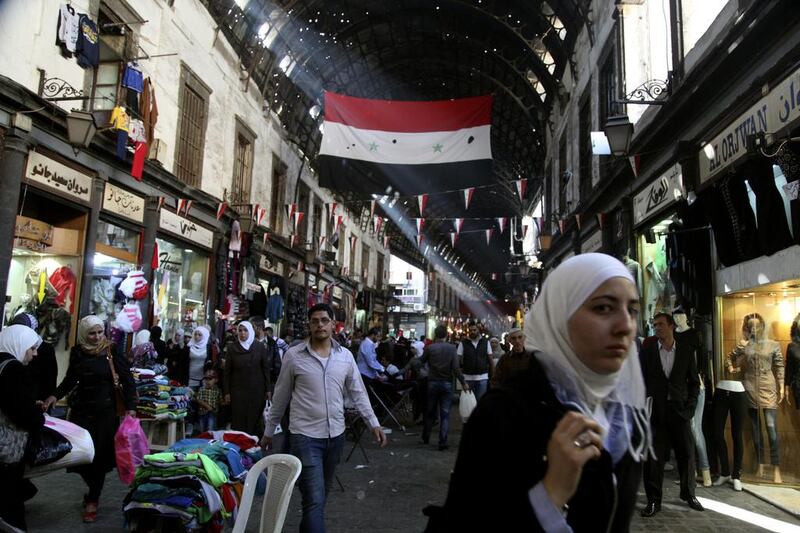A huge fire broke out in the old quarter of Damascus’s commercial district last month. The blaze destroyed at least 40 shops and while it is tough to precisely estimate the cost of the losses incurred – Damascene merchants rent small shops that are stuffed with merchandise and stock – the damage to this well-known bazaar was extensive.
The cause of the fire remains a matter of controversy.
The government attributed the fire to an electrical short-circuit, while others claimed the blaze was started deliberately to force landowners to sell their property to Iranian entrepreneurs, who are interested in establishing a greater foothold in these traditional trading districts.
The Syrian regime under Bashar Al Assad is, of course, indebted to Iran militarily, politically and financially. Indeed, without the help of Iran’s surrogates – such as Hizbollah and Asaib Al Haq – the regime would have collapsed years ago at the beginning of the Syrian civil war.
It was Iranian support that kept Bashar Al Assad in power until Russian air power swept to the regime’s rescue a few months ago.
A growing Iranian presence is clearly visible in Syria these days.
Pilgrims, tourists and businessmen are visiting sites in Damascus. Engineers, contractors and developers are buying hotels, residential buildings, shops, malls and land.
Iran is preparing itself to be involved in the reconstruction of Syria once the guns are silenced forever. Many blue-collar workersspeak Farsi in the main markets of Damascus.
According to a report prepared by an opposition group of digital activists, Iran has established a network of estate agents with links to intelligence and security authorities to facilitate their purchase of land and property in the Syrian capital and other major cities.
A Shiite cleric is involved in the wheeling and dealing of land transactions, using his contacts and influence to finalise the deals.
The UK’s Guardian newspaper has reported that Iranians are buying heavily in the Mezze district in Damascus and plan to build a large residential complex near the Iranian embassy.
If the war ever ends, Syrians will face a shortage of housing. More than 5 million homes have been destroyed during the last five years. There are 9 million refugees inside Syria and 5 million outside in Lebanon, Jordan and Turkey.
Iran is eyeing a slice of that enormous reconstruction effort if and when it rolls into action.
Already some families of the Revolutionary Guards have moved into one of the best residential quarters of Damascus, but settling Iranian families and business start-ups are the first step on a long road.
Through them, it is argued, Shia neighbourhoods would create demographic change.
The Assad regime is turning a blind eye to these developments because Iran has never wavered in its support of Damascus.
The Alawite council of elders has issued a statement complaining about Iranian entrenchment in Damascus and broader Syria. Alawites outside the Assad fold like to maintain their independence and distinction from either Sunni or Shia Islam.
The elders are afraid of getting involved in a sectarian struggle.
Maha Samara is a journalist in Beirut





